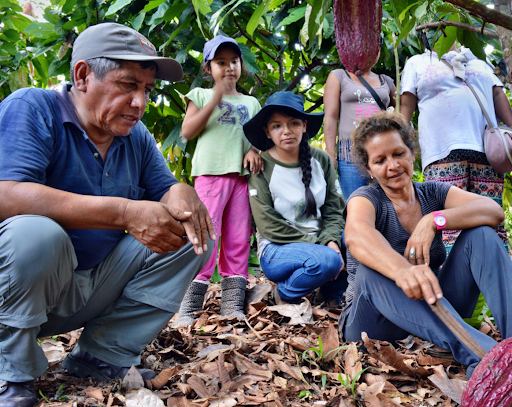Exeter takes a step towards carbon neutrality
Exeter College has launched a new initiative to offset a large portion of its carbon footprint from day-to-day operations, with help from students, Fellows, staff and a generous donor.
Exeter College is reducing its carbon footprint in many ways, including using electricity generated from renewable sources of energy, switching to smart radiator valves that can turn the heating off when a room is not in use, and investing £200,000 in refurbishing windows at our Turl Street site, upgrading their thermal insulation. We are also exploring ways we could cut our carbon footprint further, such as replacing the gas boiler at Turl Street with ground or air source heat pumps. But we realise that to prevent potentially catastrophic climate change we need to do more, both to cut and to offset our carbon footprint.
In Trinity Term we teamed up with AlliedOffsets to identify ways we could offset the carbon emissions from the College’s use of gas and our consumption of food and drink, which we calculated to be around 1,050 tonnes of CO2 per annum using 2019 figures. That’s roughly equivalent to the carbon absorbed by a forest of 50,000 trees each year! AlliedOffsets suggested a number of projects that not only remove, reduce or avoid greenhouse gas emissions, but do so while assisting local communities. A panel of students, Fellows and staff shortlisted four projects, and then we invited all students, Fellows and staff to decide how Exeter should allocate its support between them.
Following that consultation, this year Exeter College will help:
- Recover methane from landfills in Ecuador and convert it into electricity: offset 193 tonnes of CO2
- Protect indigenous communities in Peru by reducing deforestation and land degradation: offset 550 tonnes of CO2
- Distribute fuel-efficient stoves to households in Guatemala to replace inefficient open-fire cooking: offset 124 tonnes of CO2
- Invest in improved technologies in Malawi, including clean cook stoves, and promote better and more efficient kitchen and firewood management practices: offset 183 tonnes of CO2
All of the projects are carefully audited to ensure that they succeed in removing, reducing or avoiding greenhouse gas emissions.
We regard this as just the beginning of an important and exciting drive to help fight climate change. We are in the process of understanding more fully our use of energy and the waste we produce, as well as ways we can work together to reduce them both. Meanwhile we want to continue to collaborate with students, Fellows and staff to determine how best to offset carbon emissions while assisting communities around the world.

This year Exeter College will help four greenhouse gas emissions reduction projects, including helping to protect indigenous communities in Peru by reducing deforestation and land degradation
